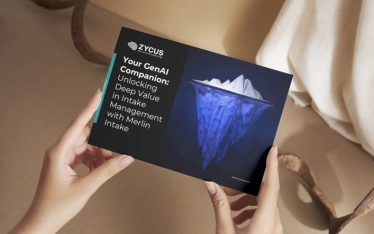Contracts are often seen as formal commitments, but in practice, their terms are frequently overlooked. Negotiating contracts with suppliers effectively can help prevent daily contract violations that large organizations face, reducing missed savings and inefficiencies. According to the Aberdeen Group, poor contract management costs businesses $153 billion annually in missed savings opportunities.
What is Supplier Performance Measurement?
Before delving into contract management, it is essential to understand the importance of Supplier Performance Measurement. A well-monitored supplier performance process ensures that contracts are honored and that the supplier delivers value throughout the relationship. This strengthens both compliance and cost savings while supporting overall procurement goals.
Key Aspects of Contract Management
Contract management typically encompasses two areas of focus:
1. Negotiating Contracts With Suppliers
Contract creation is rarely a one-person task. It involves multiple stakeholders, from the requestor to the finance and legal teams, each contributing to different aspects of the agreement. This multi-layered collaboration can lead to delays, conflicting versions, and inefficiencies.
To streamline this process, procurement leaders can implement solutions that align contract creation with broader business goals, ensuring smoother negotiations and faster turnaround times.
2. Realizing, Monitoring, and Improving Contracts
After the contract is signed, the real challenge begins: ensuring that both the organization and suppliers meet their contractual obligations. Without proper contract management, businesses can struggle to enforce terms, meet compliance requirements, and keep up with regulatory changes. This is where supplier performance measurement plays a crucial role, ensuring that suppliers meet the agreed-upon expectations throughout the contract lifecycle.
Business Challenges: When Promises are Broken
When contracts are not managed effectively, several issues can arise across different departments:
1. Procurement Challenges
Procurement teams often face difficulties with off-contract or “maverick” spend, which undermines spend compliance. Even when purchases align with contracts, the inability to match them properly can result in perceived non-compliance.
In addition, procurement teams may have to deal with employees making unauthorized commitments to suppliers, further complicating contract management.
2. Legal Hurdles
Legal teams struggle with enforcing standardized clauses and ensuring regulatory compliance. In larger organizations, contracts are often created without the necessary legal vetting, causing further complications.
3. Project Manager Issues
Project managers are responsible for overseeing the contract creation process. However, managing multiple contracts, each with several iterations, using tools like Excel or sticky notes can lead to errors and non-compliant contracts.
4. Requestor Challenges
Even when contracts are in place, requestors may not be aware of their existence or how to use them effectively. They often spend valuable time evaluating suppliers, only to struggle with navigating complex approval processes.
These challenges, coupled with damaged supplier relationships, highlight the need for efficient contract management. According to the IACCM, 30-35% of contracts underperform, leading to a loss of 9% of annual revenue.
Learn More: Explore Zycus’ Contract Management Software to ensure efficient contract utilization and supplier performance measurement.
Promises Need Not Be Broken
An effective contract management solution tailored to your procurement and legal needs can solve these inefficiencies while unlocking significant cost savings.
According to IACCM, businesses that double their contract compliance see a 600% increase in savings. Furthermore, PwC research suggests that organizations can achieve 12% greater savings overall through better contract management practices.
Benefits of a Robust Contract Management Solution:
- Comprehensive Reporting: Gain insights into contract performance, helping you track compliance and take corrective actions.
- Automated Spend-to-Contract Matching: Ensure that purchases align with contract terms, eliminating perceived maverick spend.
- Flipping Contracts into Catalogs: Convert contracts into purchasable catalogs, simplifying procurement for requestors.
- Alerts and Milestones: Stay on top of contract utilization with automated alerts at key stages, enabling proactive management.
- Enforcement of Legal Goals: Ensure that contracts reflect the most current regulatory and compliance requirements.
- Template Automation: Use drag-and-drop templates to create contracts that adhere to regulatory norms, such as SOX.
- Streamlined Approvals: Automate workflows to ensure that all contracts receive the necessary approvals.
For businesses managing hundreds of suppliers and contracts, lacking a contract management solution invites risk and leads to lost savings.
Conclusion
Effective contract management combined with Supplier Performance Measurement is crucial for maximizing savings and reducing risks. By streamlining contract creation and monitoring, organizations can ensure better supplier relationships and improved compliance.
Since you’re interested in contract management solution, you may also want to explore Zycus’ eCatalog solutions. Ready to see how Zycus can transform your procurement process? Book a demo today!
Related Reads:
- Negotiating your way to a lasting supplier relationship
- Comprehensive Guide to Strategic Sourcing
- Solution: GenAI-Powered Contract Management Software
- Guide: Your Guide to Source-to-Contract
- The Powerhouse of Production: A Guide to Direct Procurement in the Digital Age
- Generative AI and the Evolving Role of Procurement Professionals
- Case Study: AI-Powered Automated Negotiations in the Manufacturing Industry









